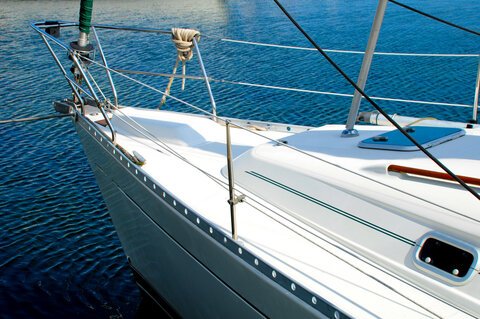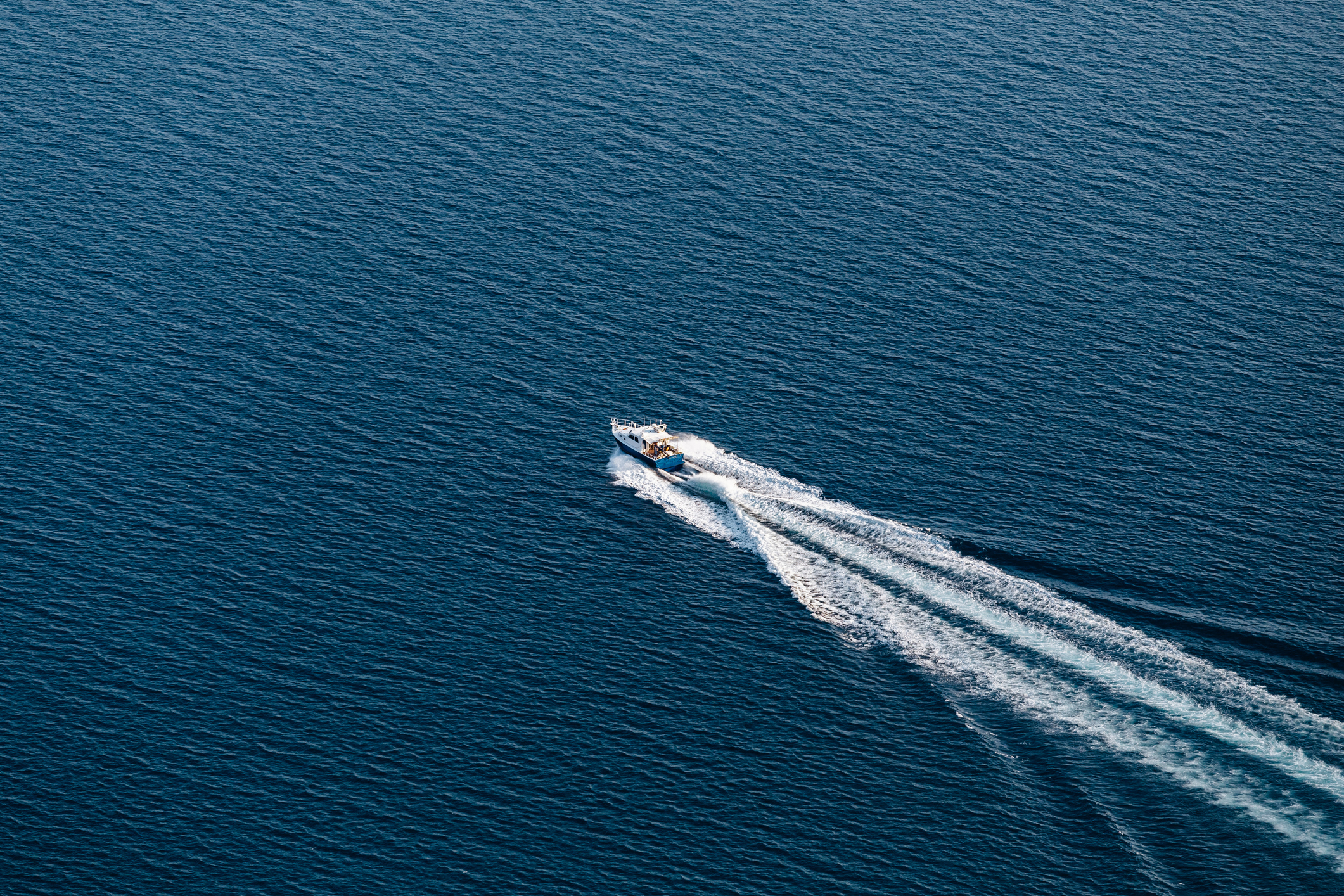Experienced captains typically know their boat like the back of their hand, understanding every detail as if it were second nature. And this knowledge isn't just for showing off – it's key for boat maintenance and safety!
One often overlooked (yet essential) part of a boat is the gunwale. But what is a gunwale, and why is it important? This post will explore everything you should know about this critical structural element.
What Is a Gunwale?
A gunwale (gunnel) is simple – but essential. Location-wise, it's on the top edge of your boat's hull. Think of it like the outermost part where the deck meets the boat's side, resulting in a flat surface.
Now, why are gunwales essential? They serve a couple of purposes. First off, many folks think of them as the perfect spot to hold fishing rods. But that's not all they're good for! Since the gunwale forms the sturdy upper edge of your boat, it also acts as a walkway for people getting on and off.
Additionally, the gunwale is something for boaters to hold on to if the waters get a bit rocky. Think of it like a protective railing or buffer that has many uses.
Where Does the Term "Gunwale" Come From?
Essentially, the word "gunwale" comes from two older words. It's "gun" plus "wale," which used to mean "plank." People started using this word way back in the 15th century. Back then, ships had these platforms on their decks where they'd put their guns or canons. And that's what sailors called the gunwale!
Maintenance Tips for Boat Gunwales
In a way, your boat's gunwale provides security to the entire hull and vessel. So, just like any other part of your boat, you'll need to care for these parts to maintain stability.
Clean them frequently using boat soap and water. Also, check for cracks often to stop water from getting in. (If you see any chips, fill them right away.)
Read Next: Boat Cleaning Guide
Safety Considerations Regarding Your Boat Gunwale
Okay, so now you know how important the gunwale is. But how do you stay safe around it? Well, first off, don't sit on it when the boat's moving. Because they're not technical seats, passengers could easily fall off in choppy waters.
That being said, you should also be careful walking on them, as they might be wet or slippery.
Customization Options for Your Gunwale
As mentioned, some boaters add non-slip traction to their boat gunwale to limit people losing their footing when walking across. However, there's much more you can do to personalize them!
Some boaters choose to add other types of extensions, such as:
- Fishing rod holders
- Cleats (to make tying off process easier)
- LED lights to improve visibility (and make it look nice)
What is the most crucial advice if you decide to make any customizations? Do so carefully! The last thing you want is to compromise the structural integrity of your boat.
What Type of Boat Gunwale Do I Have?
There are so many different types of boat gunwales to choose from! These days, boats are made with various materials – vinyl, aluminum, plastic, and even wood. It really depends on what the boat's used for.
Each of these offers a unique benefit based on what the ship is meant to do:
- Vinyl's popular because it's tough, and you don't have to fuss over it much.
- Aluminum's excellent, too; it's light and doesn't rust.
- For smaller boats, plastic is often the go-to because it's cheaper.
- Wood is not as common now, but you'll still see it on fancy boats or old-school ones where aesthetics matter.
The choice of material isn't just about looks, though. In modern boat design, manufacturers usually choose the sturdiest material that fits well with the boat's overall shape. So, while you might not think about it much, that gunwale is working hard to keep your boat strong and seaworthy!
Your Boat Gunwale: Proceed with Knowledge
We hope this guide on "what is a gunwale" helped you learn more about your vessel. Even people who grew up on boats their whole lives may not know some basic terms, but that's the fun of the hobby! There's always something new to learn about your boat.
Understanding intricate parts like this isn't just about knowing boat lingo – it's about getting to know your boat better. And the more you know, the more you can enjoy and care for it!
If you want more boating tips, explore our blog. Happy boating!


